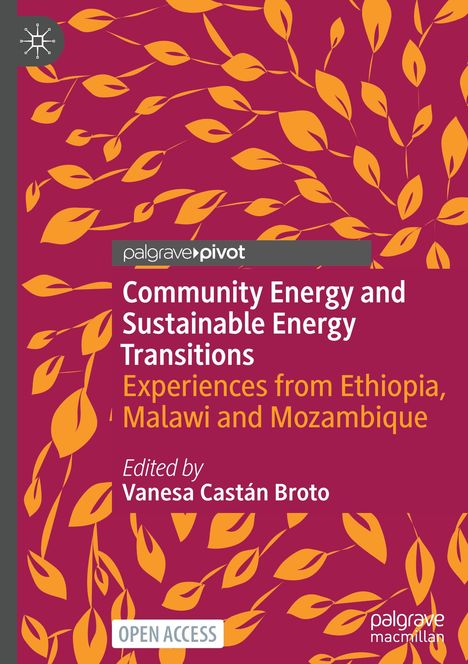Community Energy and Sustainable Energy Transitions, Gebunden
Community Energy and Sustainable Energy Transitions
- Experiences from Ethiopia, Malawi and Mozambique
(soweit verfügbar beim Lieferanten)
- Herausgeber:
- Vanesa Castán Broto
- Verlag:
- Springer Nature Switzerland, 05/2024
- Einband:
- Gebunden, HC runder Rücken kaschiert
- Sprache:
- Englisch
- ISBN-13:
- 9783031579370
- Artikelnummer:
- 11871429
- Umfang:
- 308 Seiten
- Nummer der Auflage:
- 2024
- Ausgabe:
- 2024
- Gewicht:
- 513 g
- Maße:
- 216 x 153 mm
- Stärke:
- 22 mm
- Erscheinungstermin:
- 18.5.2024
- Hinweis
-
Achtung: Artikel ist nicht in deutscher Sprache!
Klappentext
This open access book engages with the difficulties of delivering community energy in practice, building on practical experiences in Ethiopia, Malawi, and Mozambique. In these countries, where many people lack access to electricity, community energy is an alternative to advance universal energy access. This book argues that, besides providing access, community energy is essential for achieving justice and resilience in sustainable energy transitions.
Community energy combines off-grid infrastructures with innovative forms of governance to incorporate the perspectives of beneficiaries in the generation and distribution of electricity. Community energy has multiple benefits for communities, such as facilitating the adoption of renewable technologies, providing energy access where it is lacking, and building resilience. They also offer societal benefits beyond beneficiary communities, such as providing additional capacity to existing grids, delivering off-grid services where the grid is absent, and bridging on-grid and off-grid systems. Despite its promises, however, the adoption of community energy has been slow.
This book presents a feminist-informed perspective on community energy to advance energy justice that puts disadvantaged communities at the centre of sustainable energy transitions. It also explores the room for manoeuvre within existing regulatory systems, supply chains, and delivery systems to facilitate its development. By engaging with existing experiences in community energy, the book demonstrates the potential of communities to gain control over their energy needs and resources and argues for the need to develop a wide range of transdisciplinary skills among policymakers, technicians and communities to deliver a just energy transition.


